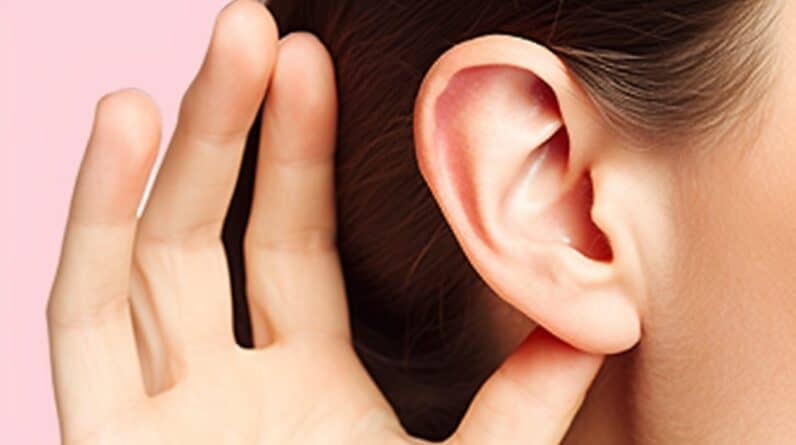
We may earn money or products from the companies mentioned in this post.
As an Amazon Associate I earn from qualifying purchases.
Introduction
Welcome to a detailed journey seeking to understand two health concerns closely related but distinctly unique—Low-frequency hearing loss and Tinnitus. Like a dance duo, they provide a complex performance that, despite its challenges, can be managed and even tamed. Let’s commence this exploration with a crucial question: What exactly is low-frequency hearing loss?
What is Low-Frequency Hearing Loss?
When was the last time you tried to listen to the steady hum of a refrigerator or catch the low notes in a symphony? You are effectively utilizing your capability to hear low-frequency sounds. However, a specific subset of individuals grapples with an unprecedented challenge—the inability to discern these low-pitch or frequency sounds, a condition known as low-frequency hearing loss.
Low-frequency hearing loss, often a result of genetic factors or exposure to certain types of noises, happens when you lose your ability to hear sounds in the low-frequency range below 2000 Hz. This can be compared to trying to appreciate a painting but missing all the shades of blue. You see most of it, but an essential element is conspicuously absent.
For a more in-depth understanding of low-frequency hearing loss, check out this comprehensive resource.
What is Tinnitus?
Now picture this: you’re seated in a tranquil room after a long day, attempting to unwind, and then you hear it—the distinctive sound of ringing, or perhaps it’s more of a whistling, buzzing, or humming sound. But as you look around, there is no discernible source for this noise. You, my friend, are experiencing a sensory phantom known as Tinnitus.
Tinnitus refers to the perception of noise or ringing in the ears, a common problem affecting about 15% to 20% of people. This baffling and often frustrating condition isn’t a condition itself but rather a symptom of an underlying condition like age-related hearing loss, an ear injury, or a circulatory system disorder.
Keen to dive even deeper? Here is a detailed look into tinnitus, a generous resource to help you understand the world of these phantom noises.
Correlation Between Low-Frequency Hearing Loss and Tinnitus
Now that you’re familiar with the concepts of low-frequency hearing loss and tinnitus, it’s time to unravel the thread that binds them together. The widespread occurrence of both conditions among a common subset of individuals raises curiosity—is it mere coincidence, or is there a deeper correlation to be inspected? Well, not only do both conditions frequently coexist, but they also interact in a sophisticated dynamic, impacting one another in numerous ways.
Symptoms of Low-frequency Hearing Loss and Tinnitus
While symptoms of each condition might vary for different individuals, a few commonalities can act as a roadmap for diagnosis. Individuals with low-frequency hearing loss typically struggle to hear and understand softer, lower-pitched sounds. Crowded rooms, over-the-phone conversations, or anyone speaking in a deeper voice could pose a genuine difficulty. Meanwhile, signs of tinnitus can include phantom sounds like ringing, buzzing, humming, hissing, and even musical tunes! These sounds could remain consistent or vary over time, impacting one or both ears. The phantom sounds may intensify during moments of silence or quiet, such as before bedtime.
For a deeper dive into the signs and manifestations of these two conditions, head over to this detailed guide on the Symptoms of Tinnitus.
Causes of Low-Frequency Hearing Loss and Tinnitus
When searching for answers, it’s essential to delve into the root causes. In the case of low-frequency hearing loss, chronic exposure to loud noises, genetic factors, natural aging, certain illnesses, and ototoxic medications make the list. Meanwhile, tinnitus could be triggered by similar causes—age-related hearing loss, prolonged exposure to loud noise, and earwax blockage. Additionally, it may arise as a symptomatic response to certain health conditions like Meniere’s disease, TMJ disorders, or injuries to the head or neck.
It’s significant to note that not everyone with low-frequency hearing loss will develop tinnitus and vice versa. However, understanding the common causes for both helps demystify their correlation and brings us a step closer to better management strategies.
Injuries and their Impacts
What role do injuries play in causing low-frequency hearing loss and tinnitus? Quite significant, as it turns out. Physical traumas, especially those involving the head or neck, can cause a direct impact on the inner ear’s tiny structures, disturbing balance and hearing function. For instance, a blow to the head can damage the cochlear hair cells, leading to hearing difficulties or causing the brain to perceive phantom noises—tinnitus. It’s not just external blows either. Even medical procedures, like ear surgeries or prolonged intubations, can potentially trigger tinnitus or exacerbate hearing loss.
For insights into how injuries, particularly head injuries, can lead to tinnitus, check out this information-rich article.
Assessing and Treating Low-frequency Hearing Loss and Tinnitus
Detecting and addressing low-frequency hearing loss and tinnitus promptly is crucial to prevent additional complications and improve quality of life. So how is this done? Through a host of measures, right from simple hearing tests, and assessments of pitch and volume of tinnitus to more detailed evaluations using imaging techniques like MRI or CT scans. These assessments lay the ground for tailored treatment methodologies.
Low-frequency Hearing Loss Treatment Options
Low-frequency hearing loss can often be managed with traditional treatments like hearing aids, cochlear implants, or bone-anchored hearing systems (BAHS). However, bear in mind, that no one coat fits all—what works for one individual might not be as effective for another.
Recent years have also seen the rise of creative approaches like sound therapies and masking techniques, offering a ray of hope to those grappling with cochlear hair cell damage, the primary cause of low-frequency hearing loss.
Tinnitus Treatment Options
When it comes to tinnitus, there is a plethora of treatments to explore, based on the root cause, severity, and individual tolerance levels. Treatments can range from conservative methods like hearing aids, sound therapies, and cognitive behavioral therapy to more advanced options like TRT (Tinnitus Retraining Therapy), Neuromodulation, or even surgery in rare cases. You might wonder, “Can tinnitus be fully cured?” The answer is complex. While there is currently no “one-size-fits-all” cure, treatment strategies can significantly reduce the perceived intensity and intrusion of tinnitus sounds, effectively giving sufferers relief and improving their overall quality of life.
Curious about the various ways to tame the ‘phantom orchestra’? Here’s a treasure trove of information on the diverse treatments for tinnitus.
Conclusion
Through this journey, we’ve gleaned essential insights into the distinctive world of low-frequency hearing loss and tinnitus. We’ve explored the symptoms, causes, and the intricate correlation between these two conditions. We’ve also dived into the impacts of injuries and discovered the abundance of treatment options available. While dealing with these conditions can be daunting, remember that knowledge is power. Understanding these disorders is your first step towards peace and relief. A strong support system, seeking professional help, and proactive self-care go a long way in helping individuals lead fulfilling lives, despite low-frequency hearing loss or tinnitus.
(p.s Missed out on some crucial information or have concerns about your hearing health? Here’s a handy tool to stay connected and keep learning. Keep exploring, growing, and hearing the melody of life to its fullest!)
What is Low Frequency Hearing Loss? - Frequently Asked Questions (FAQ)
Low-frequency hearing loss refers to the inability to hear or discern sounds in the lower end of the frequency spectrum. This type of hearing loss is often due to damage in the inner ear or disruptions to the way sounds are processed in the brain.
Tinnitus is a condition characterized by the perception of noise or ringing in the ears, even when no external sound is present. This ‘phantom’ noise perception can present as ringing, buzzing, humming or other forms of noise. It can be a symptom of underlying conditions, such as age-related hearing loss or ear injury.
Individuals with low-frequency hearing loss typically struggle with discerning low-pitched or soft sounds. Tinnitus manifests as phantom noises like ringing, humming or buzzing in the ears, often intensifying during quiet or silent periods.
Common causes of low-frequency hearing loss include chronic exposure to loud noises, genetic factors, certain illnesses, and ototoxic medications. Tinnitus can be caused by similar factors, along with certain health conditions like Meniere’s disease, TMJ disorders, and head or neck injuries.
Low-frequency hearing loss can be managed with techniques ranging from traditional treatments like hearing aids and cochlear implants to advanced options like sound therapies. Tinnitus can be treated with hearing aids, sound therapies, cognitive behavioral therapy, Tinnitus Retraining Therapy (TRT), Neuromodulation and in rare cases, surgery. The choice of treatment varies based upon the cause and degree of the condition.
Amazon and the Amazon logo are trademarks of Amazon.com, Inc, or its affiliates.









1 Comment